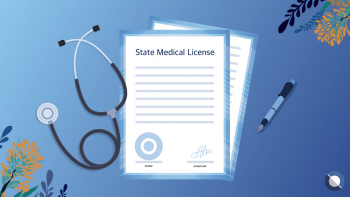 Our healthcare and business law firm previously published a blog post on the federal telemedicine rules. Both Federal and State rules govern the provision of telemedicine. Each state’s rules governing telemedicine are different, and there are specific rules around prescribing medicine from a telemedicine visit. A previous post provided an overview of Alabama’s telemedicine rules. This post focuses specifically on Alabama’s telemedicine prescribing rules. If you have questions about telemedicine rules or would like to discuss this blog post, you may contact our healthcare and business law firm at (404) 685-1662 (Atlanta) or (706) 722-7886 (Augusta), or by email, info@hamillittle.com. You may also learn more about our law firm by visiting www.hamillittle.com.
Our healthcare and business law firm previously published a blog post on the federal telemedicine rules. Both Federal and State rules govern the provision of telemedicine. Each state’s rules governing telemedicine are different, and there are specific rules around prescribing medicine from a telemedicine visit. A previous post provided an overview of Alabama’s telemedicine rules. This post focuses specifically on Alabama’s telemedicine prescribing rules. If you have questions about telemedicine rules or would like to discuss this blog post, you may contact our healthcare and business law firm at (404) 685-1662 (Atlanta) or (706) 722-7886 (Augusta), or by email, info@hamillittle.com. You may also learn more about our law firm by visiting www.hamillittle.com.
Alabama Rules on Prescribing Based on a Telemedicine Visits
A physician may prescribe medications via telemedicine so long as it would otherwise be authorized under applicable state and federal law. All telemedicine services provided must comply with all federal and state laws and regulations applicable to such services, including HIPAA, and the physician must take reasonable precautions to protect the privacy and security of all verbal, visual, written, or other communications involved therein. Ala. Code § 34-24-705. Continue reading ›
 Total Health Law Blog
Total Health Law Blog


 For various reasons, licensed medical providers may choose to voluntarily surrender their state medical license. Earlier this year, our healthcare and business law firm blogged about the repercussions of
For various reasons, licensed medical providers may choose to voluntarily surrender their state medical license. Earlier this year, our healthcare and business law firm blogged about the repercussions of  Many of our healthcare and business law firm’s clients have an interest in offering a practice that offers more flexibility to patients when it comes to in-person versus virtual visits. Deciding to offer telemedicine visits to your patients not only requires acquiring a video product that satisfies HIPAA and other privacy requirements but requires compliance with numerous laws at the state and federal level. This post analyzes potentially relevant federal laws and rules that currently apply during the Public Health Emergency (“PHE”). A subsequent post will provide an overview of state law considerations. If you have questions about
Many of our healthcare and business law firm’s clients have an interest in offering a practice that offers more flexibility to patients when it comes to in-person versus virtual visits. Deciding to offer telemedicine visits to your patients not only requires acquiring a video product that satisfies HIPAA and other privacy requirements but requires compliance with numerous laws at the state and federal level. This post analyzes potentially relevant federal laws and rules that currently apply during the Public Health Emergency (“PHE”). A subsequent post will provide an overview of state law considerations. If you have questions about  We have seen a continued growth in the popularity of medical spas despite the hurdles presented by the COVID-19 pandemic. See
We have seen a continued growth in the popularity of medical spas despite the hurdles presented by the COVID-19 pandemic. See  Our previous blog post provided an overview of the Centers for Medicare and Medicaid Services’ (“CMS”) Vaccine Mandate and addressed two basic questions of the mandate:
Our previous blog post provided an overview of the Centers for Medicare and Medicaid Services’ (“CMS”) Vaccine Mandate and addressed two basic questions of the mandate:  Welcome to the third installment of our business and healthcare law firm’s monthly medical board meeting review, focusing on the Georgia Composite Medical Board (“Medical Board” or “GCMB”). As a healthcare law firm with physician clients, it is our duty to stay up to date with the Medical Board’s positions and changes so as to better inform our clients. If you have
Welcome to the third installment of our business and healthcare law firm’s monthly medical board meeting review, focusing on the Georgia Composite Medical Board (“Medical Board” or “GCMB”). As a healthcare law firm with physician clients, it is our duty to stay up to date with the Medical Board’s positions and changes so as to better inform our clients. If you have  Direct primary care practices have become popular alternatives to the traditional insurance medical practice model. Direct primary care practices cut out insurance companies from the provider-patient relationship. This post intends to outline the recent history of direct primary care in Georgia and the relevant rules that practices must comply with to establish a direct primary care practice. If you have questions regarding this blog post or migrating to a direct primary care practice, you may contact us at (404) 685-1662 (Atlanta) or (706) 722-7886 (Augusta), or by email,
Direct primary care practices have become popular alternatives to the traditional insurance medical practice model. Direct primary care practices cut out insurance companies from the provider-patient relationship. This post intends to outline the recent history of direct primary care in Georgia and the relevant rules that practices must comply with to establish a direct primary care practice. If you have questions regarding this blog post or migrating to a direct primary care practice, you may contact us at (404) 685-1662 (Atlanta) or (706) 722-7886 (Augusta), or by email,  Ketamine is a substance growing in popularity as a treatment for, among other things, depression and pain management. Ketamine clinics are quickly increasing in popularity.
Ketamine is a substance growing in popularity as a treatment for, among other things, depression and pain management. Ketamine clinics are quickly increasing in popularity.  As a healthcare and business law firm, we work with many physicians employed
As a healthcare and business law firm, we work with many physicians employed